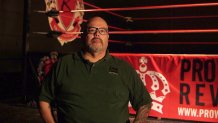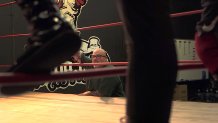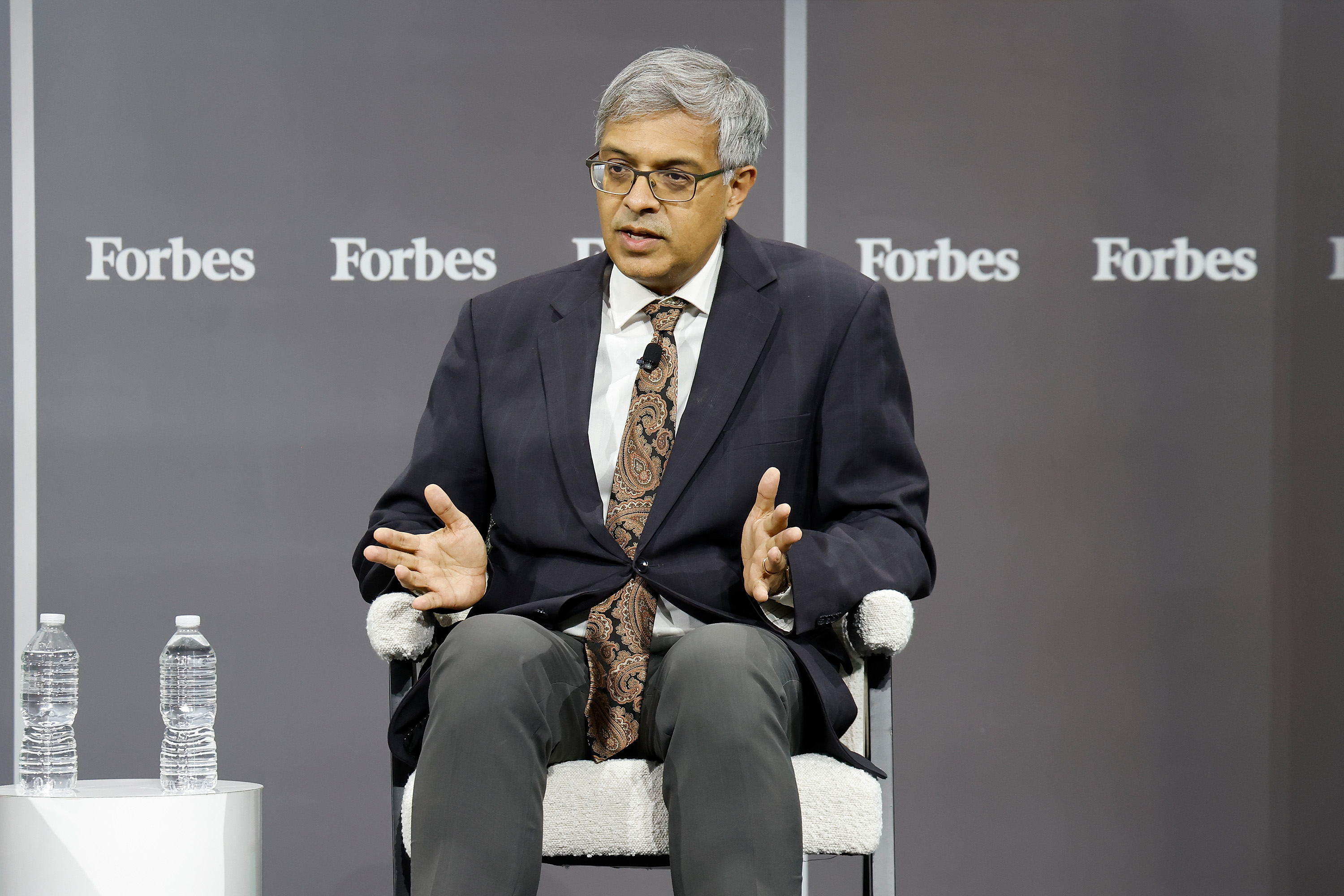Gabriel Ramirez flicked the lights on in his San Jose gym, which would soon be filled with people dressed in outlandish masks, leaping into the ring from uneasy heights and feigning dramatic beatdowns of their fellow wrestlers.
After weathering the pandemic — which came close to permanently body-slamming the pro wrestling school he founded — even the simple act of turning on lights seemed to symbolize a sort of defiance.
"I'm very proud that I can show my kids you never give up," Ramirez said, looking around the room.
Ramirez' Pro Wrestling Revolution has served as training ground for the U.S. version of Lucha Libre, the tradition of Mexican wrestling where performers don colorful masks, capes and equally colorful identities to engage in a kind of wrestling that's part athletic feat, part performance art.
We've got the news you need to know to start your day. Sign up for the First & 4Most morning newsletter — delivered to your inbox daily. Sign up here.
It's a spectacle Ramirez grew up, a passion his parents carried and handed down from their native Mexico. As a kid, his father took him to the matches at the San Jose Civic Auditorium. He was hooked.
"It’s something that’s a huge part of our culture," Ramirez said, "of how we follow sports, how we express yelling for the good guy, yelling for the bad guy."

Fifteen years ago, Ramirez started up his own wrestling training center — installing a ring and lights inside an industrial building in San Jose, staging wrestling exhibitions featuring his students' fairs, bars and any other events. His school welcomed a steady flow of people hoping to break into the rough and tumble profession of pro wrestling.
U.S. & World
The day's top national and international news.
"Everybody wants to see their name in lights," he said. "Everybody wants to see their opportunity to be a wrestler."
But when the pandemic hit, Ramirez' school and its full-contact ethos immediately shut down. Month after month passed with no income coming in as Ramirez watched his dream helpless on the ropes, its arm twisted behind its back. He knew he'd have to be creative if his business was going to survive.
In a fitting roundabout, after decades helping to preserve the culture of Lucha Libre wrestling, it was Lucha Libre that came to his rescue. Ramirez hatched a plan to get his Mexico-based mask maker to make PPE versions of pro Lucha Libre masks. He started selling them on his website lucha-masks.com. The masks had all the authentic flamboyance of the official wrestling masks, only cut down to cover mouth and nose.
They were a hit. Once again, Ramirez was back in the ring.
"If it wasn’t for Lucha Libre," Ramirez said, "I wouldn’t have the opportunity to keep our doors open."
As pandemic restrictions have eased, Ramirez' school is once again back in session with students learning the finer points of the knee drop, the axe handle and the suplex. On a recent night, Ramirez looked on as his students worked through their maneuvers, verbally pummeling those who seemed to sleepwalk through the technique and spirit of the wrestling moves and holds.
"This is theatrics, this is athletic, it’s stunt, it’s a movie, it’s comic book," he opined to his masked students gathered around the ring. "But we have to believe in it."

Ramirez says he asks a lot from his students because he wants to prevent injuries, and maintain a high bar for a sport that's as much cultural touchstone as it is entertainment.
"He’s been doing this since before I was born," said one wrestling student who identified himself only as El Vento. "I can only wish I can have the passion he has for this."
Ramirez watched as a wrestler leapt from the full height of the ring's corner, flipped in the air, latched on to his opponent — who somehow spun him in a circle before both men slammed into mat —and bounded back to his feet to receive Ramirez' blessing.
"It gives me great pride to be Latino, to my parents being from Mexico," Ramirez said beneath lights that gave his wrestling ring the garish aesthetic of a concert stage. "And being able to bring this here and be able to show them what they taught me growing up."



